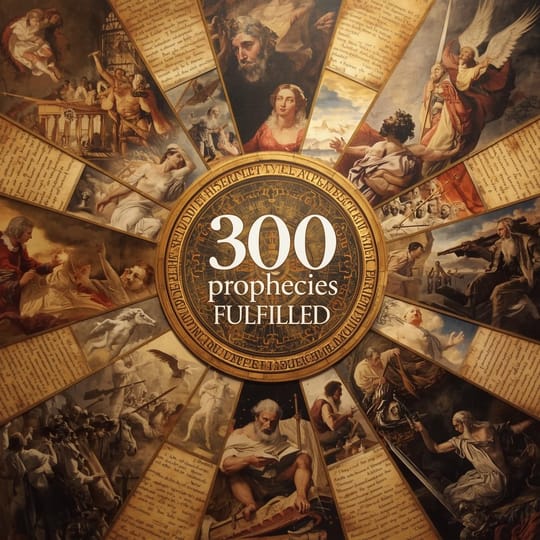Question: Hey pastor. I don’t understand tithing. I didn’t grow up in church and have heard different things. Can you give me a basic rundown of what tithing is all about?
Answer: Let’s get into it.
Btw, here are some additional links to other articles:


Tithing—the practice of giving the first 10% of our income to God through the local church—has been a topic of debate among Christians for generations. Some believe it was a requirement only under the Old Testament Law, while others insist it remains a timeless spiritual discipline for God’s people today. The reality is that tithing is not merely about money—it’s about faith, obedience, and worship. In this article, we will explore the biblical foundation for tithing, answer common objections, provide a step-by-step guide to get started, and share trusted resources for deeper study.
A Biblical Defense of Tithing
Tithing isn’t simply an Old Testament relic; it’s a principle that runs throughout Scripture. Below are seven key biblical points, each with detailed explanations and supporting passages.
A. Tithing Began Before the Law
Scripture: Genesis 14:18–20
- The first example of tithing appears in Genesis when Abram gave a tenth of his spoils to Melchizedek, the priest-king of Salem. This occurred centuries before God gave the Law to Moses, showing that tithing was never meant to be strictly legalistic but rather a voluntary act of worship. Abram recognized that everything he had came from God and responded by giving back a portion in gratitude and faith. This demonstrates that tithing flows from the heart and is rooted in God’s original design for stewardship, not just Old Testament regulations.
B. Tithing Is Part of God’s Covenant Economy
Scripture: Leviticus 27:30
- God declared that “a tithe of everything… belongs to the Lord,” setting it apart as holy. In the Old Testament, the tithe supported the work of the priests, the temple, and the needs of God’s people. It served as a tangible reminder that God is the true source of provision, not our own efforts or wealth. Even today, the principle remains: when we tithe, we acknowledge God’s ownership of all things and align ourselves with His purposes in the world.
C. Tithing Teaches God’s Ownership
Scripture: Deuteronomy 14:22–23
- God commanded His people to tithe so they would “learn to revere the Lord your God always.” Tithing teaches us that our resources ultimately belong to God, and we are stewards, not owners. By giving the first portion of our income, we declare our dependence on Him and our trust in His provision. This principle is timeless: when we put God first in our finances, it shapes our hearts to worship Him and helps us resist the trap of materialism.
D. Tithing Funds God’s Mission
Scripture: Numbers 18:21–24
- In Israel, the tithe provided for the Levites, priests, and temple workers so they could focus on leading worship and caring for God’s people. In today’s context, the local church carries out a similar mission—teaching Scripture, discipling believers, serving the community, and spreading the Gospel. When we tithe, we participate in God’s plan by fueling His work through His church. Without the faithful generosity of God’s people, the mission of reaching the lost and equipping the saints would suffer greatly.
E. God Promises Blessing Through Tithing
Scripture: Malachi 3:10
- In one of the most direct statements on giving, God challenges His people: “Bring the whole tithe into the storehouse… and see if I will not open the floodgates of heaven.” While this is not a prosperity gospel promise guaranteeing wealth, it is a divine assurance that God blesses obedience. That blessing may come in the form of provision, protection, spiritual growth, or peace—not always financial gain. The point is that God invites us to trust Him and experience His faithfulness when we put Him first.
F. Jesus Endorsed Tithing
Scripture: Matthew 23:23
- In the New Testament, Jesus rebuked the Pharisees for their hypocrisy but affirmed the practice of tithing. He said, “You should have practiced the latter, without neglecting the former,” meaning they should pursue justice, mercy, and faithfulness while continuing to tithe. This shows that Jesus did not abolish the tithe but raised the bar by connecting financial obedience to deeper matters of the heart. For followers of Christ, generosity isn’t a burden—it’s an expression of worship and love.
G. Tithing in the New Testament Church
Scripture: 2 Corinthians 9:6–7
- The New Testament emphasizes cheerful and willing generosity while maintaining the principle of systematic giving. Paul instructs believers to give “what they have decided in their heart,” but also reminds them that God blesses the faithful giver. The tithe serves as a starting point, not a limit, for Christian generosity. Under grace, our calling is even greater—we give out of joy, gratitude, and an awareness that everything we have belongs to God.
Dealing with Top Objections to Tithing
Tithing raises questions for many believers, and it’s important to thoughtfully address common objections with Scripture and pastoral wisdom.
Objection 1: “Tithing is an Old Testament law and doesn’t apply today.”
This is one of the most frequent objections, but it misunderstands the timeline of Scripture. Tithing predates the Law by hundreds of years, beginning with Abram in Genesis 14 and Jacob in Genesis 28. Jesus Himself affirms the practice in Matthew 23:23, demonstrating its continued relevance. While the New Testament calls us to generosity motivated by grace, the tithe remains a healthy baseline for faithful stewardship.
Objection 2: “I can’t afford to tithe right now.”
The reality is that most people don’t start tithing because they feel financially secure—they tithe as an act of faith. Proverbs 3:9–10 instructs us to honor the Lord with our “firstfruits,” meaning we give to God first, not from what’s left over. Trusting God with the first 10% requires dependence on Him, and over time, He demonstrates His faithfulness in providing for our needs. The issue isn’t about having extra—it’s about putting God first.
Objection 3: “I give my time and talents instead of money.”
Serving God with your time and abilities is essential, but Scripture shows that financial generosity is a distinct act of worship. Jesus says, “Where your treasure is, there your heart will be also” (Matthew 6:21). Giving money reflects the surrender of our deepest priorities and demonstrates that God—not material wealth—holds first place in our lives. Time, talent, and treasure all matter, but the tithe specifically deals with our income.
Objection 4: “Churches misuse money, so I’d rather give elsewhere.”
Concerns about financial mismanagement are valid, but Scripture calls us to bring the tithe to the “storehouse” (Malachi 3:10), which in today’s context is the local church. Giving elsewhere may be generous, but it does not replace God’s design for resourcing His church’s mission. While churches should operate with integrity and transparency, our obedience is to God, not institutions. If your church lacks financial accountability, address it, but don’t abandon God’s command.
Objection 5: “I give when I feel led, not out of obligation.”
While Spirit-led generosity is important, God also establishes consistent patterns for giving to train our hearts in obedience. Feelings fluctuate, but faithfulness is steady. Paul teaches that systematic, planned giving helps believers grow in discipline and allows the church to operate effectively (1 Corinthians 16:2). Consistent tithing isn’t legalism—it’s a way to prioritize God’s kingdom over temporary impulses.
How to Begin Tithing
Tithing is a spiritual discipline, and like any discipline, it takes intentional steps to develop the habit. Here’s a practical, Scripture-based guide to getting started:
Step 1: Surrender Your Finances to God
Scripture: Matthew 6:33
- Before setting up a giving plan, recognize that everything belongs to God. He is your Provider, and you are His steward. When you surrender your finances to Him, it shifts your perspective from ownership to management. This mindset change is the foundation for faithful and joyful giving.
Step 2: Decide to Put God First
Scripture: Proverbs 3:9
- Tithing is about priority, not leftover generosity. God calls us to give Him the first 10% of our income as an act of trust and worship. By doing so, we acknowledge that everything we have comes from Him and that He sustains us. Giving first requires faith, but it sets the right foundation for all other financial decisions.
Step 3: Start Where You Are
If giving 10% feels overwhelming, begin with a smaller, consistent percentage and work your way up. The key is obedience, consistency, and growth over time. God sees your heart and honors your willingness to step out in faith. Developing the habit of generosity gradually strengthens your trust in God’s provision.
Step 4: Give Through the Local Church
Scripture: Malachi 3:10
- God calls His people to bring the tithe into the “storehouse,” which for us today is the local church. This supports discipleship, missions, worship, and outreach within your community. While giving to other ministries and charities is valuable, it should never replace the tithe to your church family. Your faithful giving fuels the Gospel where you worship and serve.
Step 5: Give Cheerfully and Expectantly
Scripture: 2 Corinthians 9:7–8
- God loves a cheerful giver. Giving shouldn’t feel like a burden—it’s an opportunity to participate in God’s work and grow spiritually. When you tithe with expectation, you trust that God will honor His promises and provide for your needs. Over time, you’ll experience deeper joy, freedom, and reliance on God’s faithfulness.
Resources for Further Study
To explore biblical generosity and tithing in greater depth, here are some trusted books, sermons, and online resources:
Books
- The Treasure Principle — Randy Alcorn
- Fields of Gold — Andy Stanley
- Money, Possessions, and Eternity — Randy Alcorn
- The Blessed Life — Robert Morris
Sermons & Studies
- “Why We Give” — J.D. Greear
- “The Blessed Life” Series — Gateway Church
- Dave Ramsey’s Financial Peace University
Articles & Online Resources
- Desiring God: “Should Christians Tithe?”
- GotQuestions: “Is Tithing for the New Testament Church?”
- Crown Financial Ministries
Bottom Line
Tithing is not about God taking something from you—it’s about God forming something within you. It builds trust, deepens faith, and fuels the mission of the Gospel. When we bring our first and best to God, we declare that He is our Provider and that we depend on Him above all else. Imagine what God could do if every believer faithfully gave—it would unleash resources to reach the lost, disciple believers, and impact entire communities for Christ.
More about tithing from Real Life Church:













